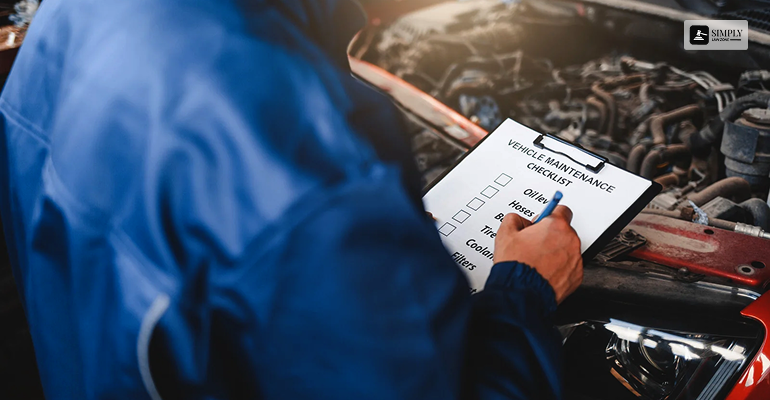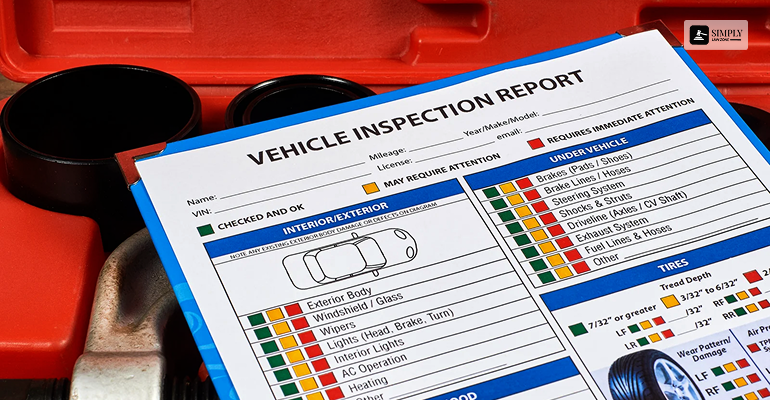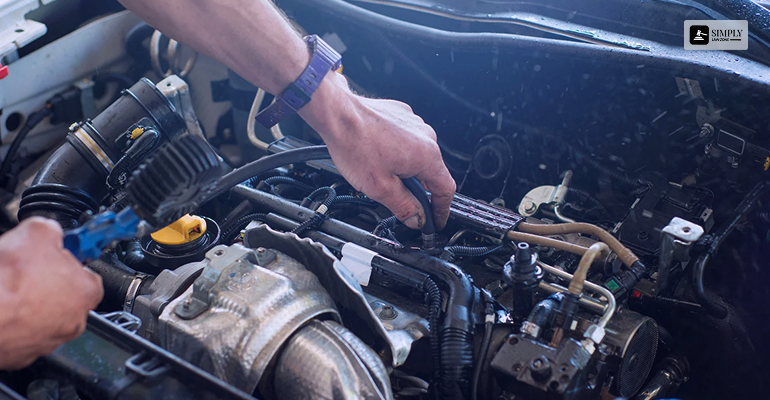
Car inspections always felt like a chore. However, honestly, they have been around forever. In fact, they have played a big role in keeping cars safe and the air a little less gross – at least the regulators claim that. In 2025, the Texas Car Inspection Law brought a major change.
But that does not mean you can just ignore your car now. You must still check your brakes or lights again. In fact, you have to pay more attention. Because if you don’t, the responsibility falls upon you. This way, you can avoid fines and headaches.
Obviously, nobody wants to be stranded on the side of I-35 because they thought “no inspection” meant “no maintenance.” So, although the rules have changed, you still have responsibilities that you cannot avoid.
Therefore, read on to get a better idea of the new Texas Car Inspection Law. Moreover, you will also learn about the specific changes.
Texas Car Inspection Law: What Changed in 2025?

The Texas car inspection law has brought new changes.
What’s the biggest change? No more mandatory safety inspections for non-commercial cars. Hence, you don’t have to drag your vehicle to the inspection station every year anymore.
From January 1, 2025, no more lining up at the inspection station for most vehicle owners. With the introduction of House Bill 3297, suddenly, if you’ve got a regular, non-commercial ride, you’re off the hook for those yearly safety checks.
Instead, you have to pay a sum of $7.50 as an “Inspection Program Replacement Fee” when you register your car. Meanwhile, if you just bought a new car – that’s $16.75. But it covers you for two years.
Moreover, there’s a catch. Suppose your car is registered in one of those 17 emissions counties (including Dallas, Harris, Travis, El Paso, etc.), you have to go for an annual emissions test every year.
Why is this test necessary? Essentially, they check your exhaust. Moreover, they make sure your car is not spewing out more junk than it should. This helps maintain state pollution standards.
Why Emissions Testing Still Exists?

So, why are we still doing this emissions testing? Why not just skip the whole thing?
Well, emissions testing is a legal requirement in high-pollution counties. Hence, Texas has to follow the federal air quality rules. These tests help cut down on the harmful pollutants coming out of tailpipes.
What if you skip the test? Your registration will be invalid. Moreover, you might have to pay hefty fines. Hence, it is not worth the risk.
Hence, the car inspection law Texas got looser for some folks. However, for a lot of Texans, emissions testing is still part of the deal.
What Does This Mean for You?
If you live outside the emissions counties, you won’t need to worry about inspections anymore—just pay the replacement fee during registration. But if you’re in an emissions county, you’ll still need to schedule an annual test.
The following are some of the major aspects you must get a better idea of:
- No more safety inspections for non-commercial vehicles.
- Emissions testing is still important. In fact, it is mandatory in 17 counties. Hence, if you’re in one of those, you still have to drag your vehicle for annual emissions tests.
- Commercial vehicles still have to go through the whole inspection routine. Hence, no shortcuts there.
And just because the law changed doesn’t mean one can skip regular maintenance. For instance, faulty brakes, busted lights, and bald tires might still get you in trouble. Or worse, cause an accident. Hence, the responsibility is still very much yours.
Texas Car Inspection Law and Commercial Vehicles
As already mentioned, commercial vehicles are still under the microscope. In fact, they have to go through annual safety inspections—no matter where they’re registered. So, whether you are in Austin or Amarillo, yearly inspections are mandatory.
But the good part is that you do not have to pay that extra $7.50 replacement fee. This is because you are still paying for the actual inspection.
To be honest, this extra scrutiny is necessary. At the outset, these vehicles are out there hauling goods, driving long distances, and carrying weight. Obviously, you don’t want a semi with bad brakes barreling down the highway. Hence, the Texas car inspection law keeps commercial vehicles in check.
How to Stay Compliant Without Safety Inspections?
Just because you do not have to keep up with annual inspections does not mean you should neglect your vehicle. In fact, no one’s checking it for you anymore. Hence, it’s your sole responsibility now.
The following are some of the things you must check to stay compliant and safe:
- Lights and signals- do monthly checks.
- Tires – Look for wear and tear. Also, make sure they are inflated.
- Brakes – Always test them. Don’t wait till they squeal.
- Wipers– Replace when they smear more than they clear.
- Mirrors – Make sure they are always clean and intact.
Basically, these are good habits—and they keep you out of trouble. In fact, driving with faulty safety features is still illegal and risky.
Frequently Asked Questions (FAQs)
The following are some of the most common questions you will come across regarding the Texas Car Inspection law:
Yes. That part hasn’t changed in the Texas Car Inspection law. You still have to register and pay the replacement fee when you do.
If you skip the emissions test, your registration becomes invalid. Moreover, you could get ticketed for driving an unregistered vehicle.
Yes. Commercial vehicles and vehicles in emissions counties still have inspection requirements.
No. The replacement fee replaces the previous inspection fee and helps fund state programs like highway construction.
A Responsibility Shift!
The 2025 update to the Texas car inspection law actually makes life easier for many people. No more yearly safety checks for most cars. However, on the flipside, less oversight means more responsibility. In fact, you are the inspector now.
Moreover, if you are in one of those emission counties, you will not be able to skip the test. Otherwise, you will lose your registration.
Do you have more information to add regarding the Texas car inspection law? Please share them in the comments section below.


